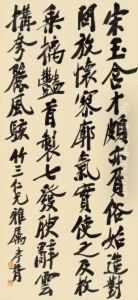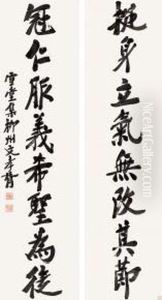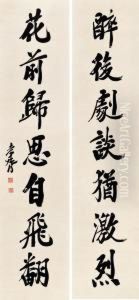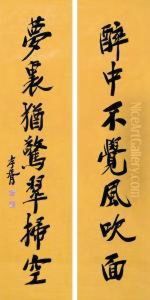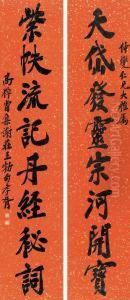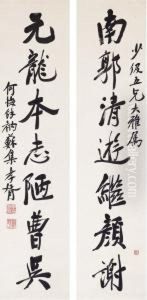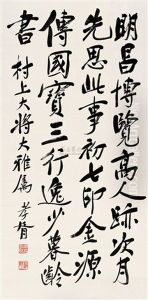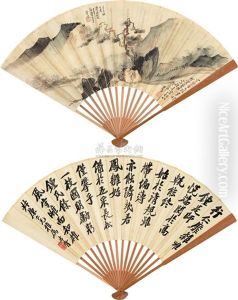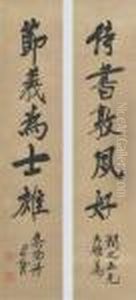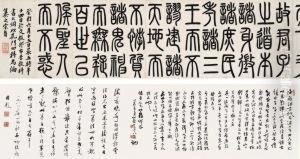Zheng Xiaoxu Paintings
Zheng Xiaoxu was a prominent Chinese calligrapher, poet, painter, and politician, born in 1860 in Fujian Province, China. His multifaceted career spanned various roles in the late Qing dynasty and early Republic of China periods, reflecting the turbulent changes in China's political landscape during his lifetime. Zheng was educated in the Confucian classics and demonstrated early talent in calligraphy and poetry, which were highly valued skills in Chinese scholarly tradition.
In addition to his artistic pursuits, Zheng Xiaoxu played a significant role in China's political scene. He initially served the Qing dynasty in various capacities, including as an official in Taiwan, where he contributed to the island's administrative organization. After the fall of the Qing dynasty in 1911, Zheng's career took a controversial turn when he aligned himself with the Japanese puppet state of Manchukuo in the 1930s. He served as the first Prime Minister of Manchukuo under the rule of Puyi, the last Emperor of China, who had been installed as a figurehead ruler by the Japanese.
Zheng Xiaoxu's political alignment with Japan and his role in Manchukuo have overshadowed his contributions to Chinese art and culture to some extent. Nevertheless, he is remembered as one of the great calligraphers of his time, admired for his elegant and powerful brushwork. His calligraphy and poetry reflect a deep connection to traditional Chinese aesthetics and philosophical thought, embedding Confucian values and themes of nature into his works.
Despite his political affiliations, Zheng's artistic legacy continues to be celebrated in China and internationally. His works are preserved in various museums and collections, showcasing his skill in blending traditional Chinese art forms with the personal expression that characterized the literati culture of his era. Zheng Xiaoxu's life and work embody the complex intersections of art, politics, and identity in early 20th-century China, offering a unique perspective on a period of profound transformation.

